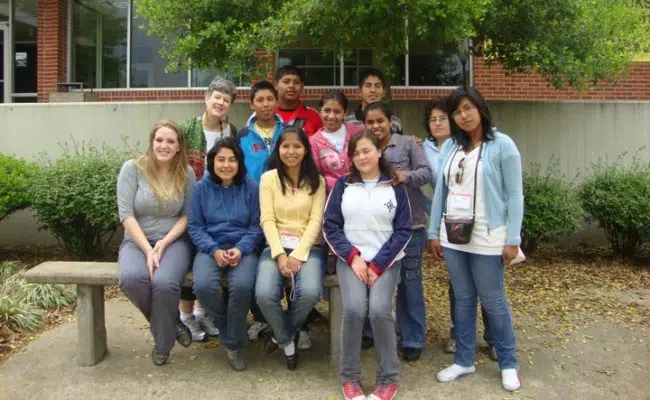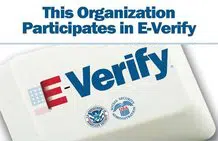The Arkansas-Eastern Bolivia Chapter, which started in 1965, has led numerous exchanges primarily in the areas of health, agriculture, culture, and education. Our Youth Ambassadors (YA) Program is one of the Chapter’s most successful initiatives and therefore a best practice. Initially, we worked for several years with YAs from Bolivia, hosting YAs from all nine of the Bolivian departments. We then hosted five YAs and mentors each from Colombia and Venezuela. Additionally, we were privileged to have several Arkansas YAs and three mentors selected to go to Ecuador and Colombia.
The following steps are needed for the success of the YA Program:
- The first step is to identify prospective YA travelers and take into consideration their age, interests, abilities and most importantly, the goals and objectives of the trip.
- Secondly, we have to identify prospective hosts to provide housing, meals, and transportation. To help find host students and families, I call Spanish teachers who were either former students in my “Methods of Teaching Foreign Language” or “Teaching English as a Second Language” classes. We try to pair YAs with their “brothers/sisters” based on age, gender, and interests. Such arrangements have often resulted in ongoing friendships.
- The third step is identifying schools that will permit high school YAs to shadow their host “brothers or sisters” to classes and participate in extracurricular activities. On the days that the YAs are shadowing, we plan activities for the mentors that are based on their interests. For example, mentors have visited local artists in their studios like the Art Experience, founded by one of our members who is a local art therapist, and have visited Peace at Home, a place for women and their children who are escaping domestic violence.
- The preparation of a proposed itinerary is the fourth step.
- a. First, we plan activities that relate directly to visiting the high school. The YAs “shadow” their host “brother” or “sister” from class to class. They make presentations about their countries to different classes and clubs, especially those that are related to Spanish or international affairs; and attend special events such as football games and Homecoming activities.
- b. We then focus on those activities that permit the YAs to serve as “ambassadors,” such as visits to meet the mayors in Northwest Arkansas. Fayetteville’s mayor gives them pins that are “keys to the city of Fayetteville.”
- c. We next give special attention to those activities that reflect the major objectives for their visit. The last group of YAs focused on sustainability and ecological concerns, so we went to the Beaver Water District to find out where local water is obtained and how it is purified for drinking.
- d We further include activities that focus specifically on American culture that showcase its diversity. YAs attend events like the Lincoln Applefest where they eat “apple dumplings” and the ArkanSalsa Festival that was started primarily by one of our past Partners’ presidents and acts as an event to bring all local cultures together.
- e. It is also important that ample time is set aside for family time because it is here that a special kind of bonding takes place.
- f. Lastly, the agenda includes free time for the YAs to communicate with their parents, make notes for their reports, and rest.
- The fifth step is arranging for transportation. I usually contact a van driver who is experienced as a driver of large vehicles, especially someone who has experience with children.
- Lastly, we draft a tentative budget that lists costs for all of our expenses, including a “Buen Viaje” Party and souvenirs for all those involved. All of the YAs are presented with “Arkansas Traveler” certificates signed by our governor that indicate that they are “ambassadors” for Arkansas.
Some of the lessons we have learned from the YA Program are:
- Choosing a school coordinator that is a Spanish or an ESL teacher. This person helps get the approval of the school’s principal, recruit students as host “brothers/sisters” and through them their host families, and arrange for school class visitations and special events.
- Drafting an itinerary, which includes all activities and logistics about specific pick up and drop off times.
- Drafting a tentative budget for meals, fees, tickets, souvenirs, the van driver, etc.
- Keeping host families informed to discuss their expectations, responsibilities, logistics, and, obligations.
Our experience in the YA program has resulted in two recent wonderful, unexpected, and rewarding outcomes. First of all, out of the last group of five Venezuelan YAs, two of them have traveled again to Northwest Arkansas. Their prior host families paid for their flights back to Arkansas, are hosting them in their homes, and are paying for their education in one of our local community colleges. A third YA is waiting for a similar outcome, expected to arrive here in the near future, and will be able to start school for the spring semester at one of our local community colleges. A big plus for any YA graduating from this community college with a good GPA is that they can obtain discounted tuition costs for transferring to the University of Arkansas.
Secondly, one of our mentors who accompanied the YAs to Colombia maintained a friendship with the Colombian coordinator of the YAs. What resulted from this budding friendship was hosting the coordinator in her home in Arkansas for up to six months, where he studied ESL classes at the local Northwest Arkansas Community College for free. Afterward, he passed the TOEFL and studied at the London School of Economics from which he has just graduated with a master’s degree and is returning to Colombia to seek employment.
For its rich cultural exchanges and successes, the YA program is one of the most rewarding initiatives in our organization’s goals to connect, serve, and change lives.




